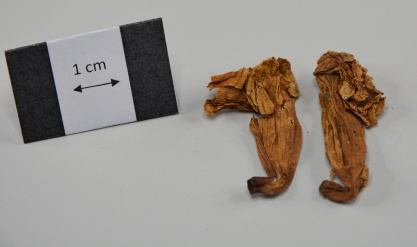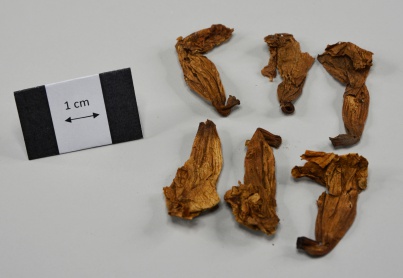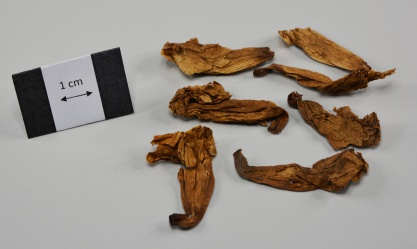洋金花
- ENG
- Datura Flower
- LATIN
- Daturae Flos
| Medicinal Group | Cough-suppressing and panting-calming medicinal |
|---|---|
| Source | Dried flower of Datura metel L. (Fam. Solanaceae) |
| Nature and Flavors | pungent; warm; toxic |
| Meridian Affinity | Liver, Lung |
| Actions | To relieve asthma and cough, alleviate pain, and arrest convulsions |
Family
Solanaceae
Part used
Flower
Indications
Asthma and cough; epigastric pain with cold sensation; rheumatic arthralgia; chronic inflantile convulsions; anesthesia for surgical opertion
Cautions
Contraindication in patients with cough and asthma caused by afflications from exterior pathogenic feature or phlegm-heat, glaucoma, hypertension, or tachycardia. One of the items in Schedule 1 potent/toxic Chinese herbal medicines of the Chinese Medicine Ordinance (Hong Kong)
Report on adverse effect
Research Findings
- Serious poisoning may occur following the use of yangjinhua, the dried flower of Datura metel L, for treating bronchial asthma, chronic bronchitis, pains and flu symptoms. [1]
- In Hong Kong, contamination of non-toxic herbs by tropane alkaloids and substitution of Flos Campsis by toxic Flos Daturae Metelis were the predominant causes of herbal medicines induced anticholinergic poisoning.[2]
Reference
Reference
- Chan TY (1995). Anticholinergic poisoning due to Chinese herbal medicines. Vet Hum Toxicol. , 37(2):156-7.
- Chan TY. (2016). Herbal Medicines Induced Anticholinergic Poisoning in Hong Kong. Toxins (Basel). , 8(3). pii: E80. doi: 10.3390/toxins8030080.












